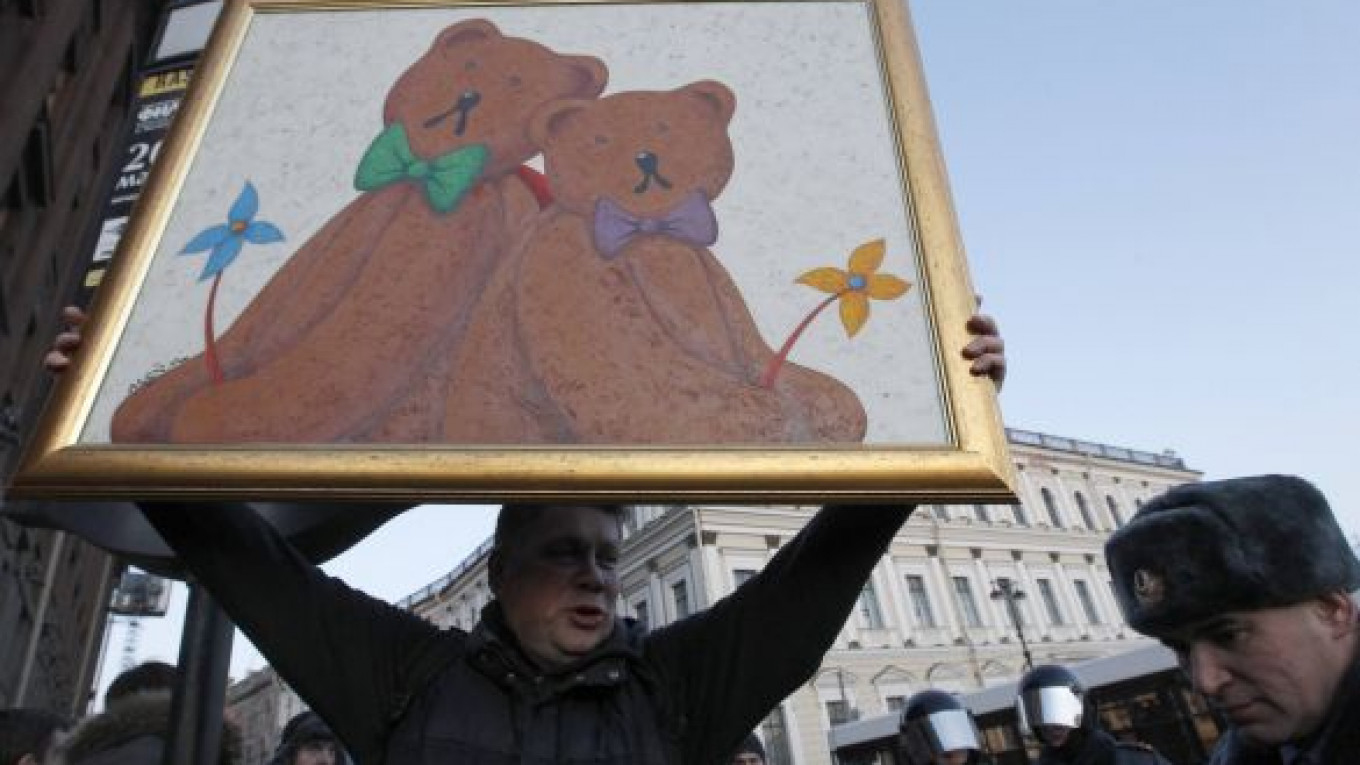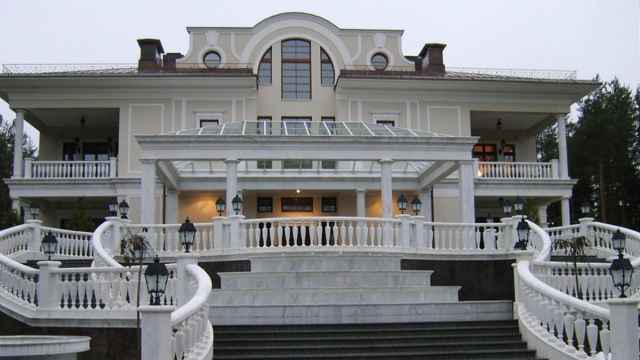The day after a large post-election rally ended in mass detentions, opposition leaders vowed more protests, sparking fears and raising questions about the sustainability of the protest movement.
“We will absolutely stage more rallies, and tens of thousands will take to the streets of Moscow and other cities and will refuse to leave,” opposition leader Alexei Navalny as he emerged from police detention early Tuesday morning.
Navalny and others were dragged away by riot police after refusing to leave Pushkin Square following a peaceful protest for free and fair elections.
Tuesday evening, about 20 demonstrators wearing white ribbons were also detained on Pushkin Square, police said, Interfax reported. The group had attempted to enter the square, which has been fenced off by police since Monday’s rally.
At about the same time, negotiations for the next rally were in progress. A tentative date of March 10 was set.
“On March 10, we’ll take to the streets. I don’t see any other options,” said opposition leader Ilya Yashin, who was detained with Navalny.
But analysts speculated that after three months, protesters were losing their taste for large street rallies.
“There’s no demand for them anymore,” said Gleb Pavlovsky, head of the Foundation for Effective Policy and a former Kremlin adviser, citing relatively poor turnout and a perceived lack of enthusiasm at Monday’s protest.
On Tuesday, opposition leaders and officials sparred over exactly who was to blame for the mass detentions and whether riot police used proper restraint.
Videos of protesters forming a human chain around Navalny and opposition leader Sergei Udaltsov then being dragged away by police in full riot gear drew concern, including from U.S. Ambassador Michael McFaul, who tweeted that he was “troubled” by the footage.
The remark drew a sharp response from the Foreign Ministry, which replied via Twitter: “The police on Pushkin Square were exponentially more humane than the ones who broke up Occupy Wall Street protests.”
Prime Minister Vladimir Putin’s spokesman, Dmitry Peskov, also praised police for following the law with what he called “a high level of professionalism” and “effectiveness,” RIA-Novosti .
State Duma Deputy Ilya Ponomaryov wrote on his LiveJournal blog that riot police didn’t ask any questions before “savagely” breaking up a legal post-protest gathering.
But Navalny seemed to suggest that the confrontation was planned in advance.
“What happened today was Udaltsov’s experiment in creating a tent camp. … It showed that right now, at a moment’s notice, there are hundreds who will stay to the end,” he said.
All the people arrested Monday have been released, The Associated Press reported, adding that most face a maximum 2,000 ruble ($65) fine.
Investigators are looking into reports of calls to defy police orders and incite mass disorder at Monday’s rally, the Investigative Committee in a statement on its website.
The latter charge carries a maximum sentence of two years in prison, Gazeta.ru reported.
Pavlovsky said the authorities will use Monday’s confrontation to paint the opposition as extremist. “Opposition leaders played into the Kremlin’s hands,” he said.
In the run-up to the election, which Putin won in a landslide, some prominent supporters of the prime minister, including Mayor Sergei Sobyanin, insinuated that the opposition was part of a foreign-funded plot to overthrow the government.
As if to reinforce that view, Moscow regional police detained two young men suspected of plotting to bomb post-election rallies, Newsru.com Tuesday.
Opposition leaders pledged to push on with more protests to pressure the government to carry out wide-ranging democratic reforms, including those proposed by President Dmitry Medvedev.
He is seeking to initiate a return to direct elections of governors and to make it easier to form political parties.
Veteran opposition leader Boris Nemtsov said future protests need not take the form of mass rallies.
“There could be pickets, strikes, rallies, marches. Everything is on the table,” he said.
In a post Tuesday, radical opposition leader Eduard Limonov, who was detained Monday for staging an unsanctioned protest on Lubyanskaya Ploshchad, praised Navalny and Udaltsov for “defending the opposition’s honor.” He pledged to “form a new, strong opposition.”
Earlier, Limonov blamed opposition leaders for failing to attract ordinary Russians.
Pavlovsky seconded that, saying he couldn’t understand why they hadn’t entered into dialogue with sympathetic elements in the bureaucracy.
Neither Limonov nor Udaltsov is a stranger to police detentions, and some saw their arrests as evidence that the loosely united opposition was splitting into ideological factions.
Alexei Mukhin, an analyst with the Center for Political Information, identified three: one that is willing to work with the authorities, one that is radically opposed to compromise and one — the largest — that would melt back into the general population.
Pavel Salin, an analyst at the Kremlin-connected Center for Current Politics, believes that the protest movement will decline unless a leader emerges who can unite the various factions.
Salin cited a Levada Center poll of participants in the Dec. 24 rally on Prospekt Sakharova. It found that only 36 percent of those responded said they trusted Navalny.
That put the anti-corruption blogger second behind TV journalist Leonid Parfyonov, whom 41 percent of respondents trusted.
“Navalny is missing something, and people are tired of the old-guard opposition leaders,” Salin said. He named Boris Nemtsov and Vladimir Ryzhkov as examples of the old guard.
The temporary suspension of mass street protests could also be interpreted as a sign of their success, notably in spurring Medvedev’s reform proposals, which are currently under consideration by the Duma.
“The street protests have achieved their aims,” Mukhin said. “Now it’s time for the opposition to go from the street to the office, to build new parties and civil organizations.”
A Message from The Moscow Times:
Dear readers,
We are facing unprecedented challenges. Russia's Prosecutor General's Office has designated The Moscow Times as an "undesirable" organization, criminalizing our work and putting our staff at risk of prosecution. This follows our earlier unjust labeling as a "foreign agent."
These actions are direct attempts to silence independent journalism in Russia. The authorities claim our work "discredits the decisions of the Russian leadership." We see things differently: we strive to provide accurate, unbiased reporting on Russia.
We, the journalists of The Moscow Times, refuse to be silenced. But to continue our work, we need your help.
Your support, no matter how small, makes a world of difference. If you can, please support us monthly starting from just $2. It's quick to set up, and every contribution makes a significant impact.
By supporting The Moscow Times, you're defending open, independent journalism in the face of repression. Thank you for standing with us.
Remind me later.






